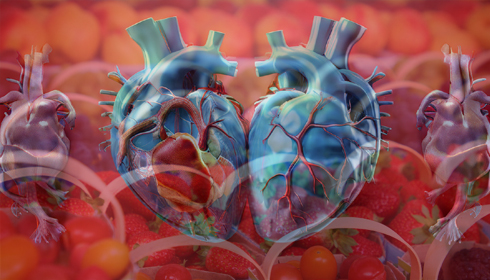
Eating More Fruits & Vegetables Lowers Blood Pressure, Improves Kidney and Heart Health in Hypertension Patients, Finds Trial
Eating more fruits and vegetables can significantly lower blood pressure and improve renal and heart conditions in people with hypertension, according to a recent study. This study, which is published in The American Journal of Medicine, emphasises the need for dietary modifications in managing hypertension and associated risks.
The study included a five-year randomised control trial led by Dr. Donald E. Wesson of Dell Medical School at the University of Texas at Austin. The study concentrated on patients with hypertension and excessive urine albumin excretion (macroalbuminuria), which points to chronic renal disease and an increased risk of cardiovascular problems.
"Our patient studies showed that a base-producing diet, high in fruits and vegetables, is beneficial, while an acid-producing diet, heavy in animal products, is harmful to the kidneys," Dr Wesson said.
This means that eating fruits and vegetables would help to lower dietary acid, the researchers noted in their paper that fruits and vegetables improve kidney and heart health.
There were 153 participants in the study, split into three groups to assess how dietary changes affected connected health problems, including hypertension. One group included 2–4 cups of fruits and vegetables in their daily diet; another used sodium bicarbonate (NaHCO3) pills to lower acid levels; and the third group got regular medical treatment from their main doctors.
The findings showed that both dietary strategies improved renal health; yet, only the group consuming higher volumes of fruits and vegetables showed notable declines in blood pressure and improved cardiovascular risk factors.
"Fruits and vegetables not only improved kidney health but also reduced blood pressure and cardiovascular risk with lower medication doses," co-investigator Dr. Maninder Kahlon said.
"This backs up our advice that treating hypertension should start with fruits and vegetables," he added..
Dr. Wesson emphasizes the importance of initiating hypertension treatment with dietary adjustments, pointing out that these therapies often go unnoticed despite their significant impact. To safeguard kidney and cardiovascular conditions, we should intensify our efforts to include them in patient care in order to safeguard kidney and cardiovascular conditions.
To look for underlying renal disease and increased cardiovascular risk, the researchers advise patients with hypertension to ask their doctors to evaluate their urine albumin-to-creatinine ratio (UACR).
This study emphasises how important nutrition is to controlling hypertension. Patients can improve their health outcomes with a reduced medication dosage by including more fruits and vegetables.